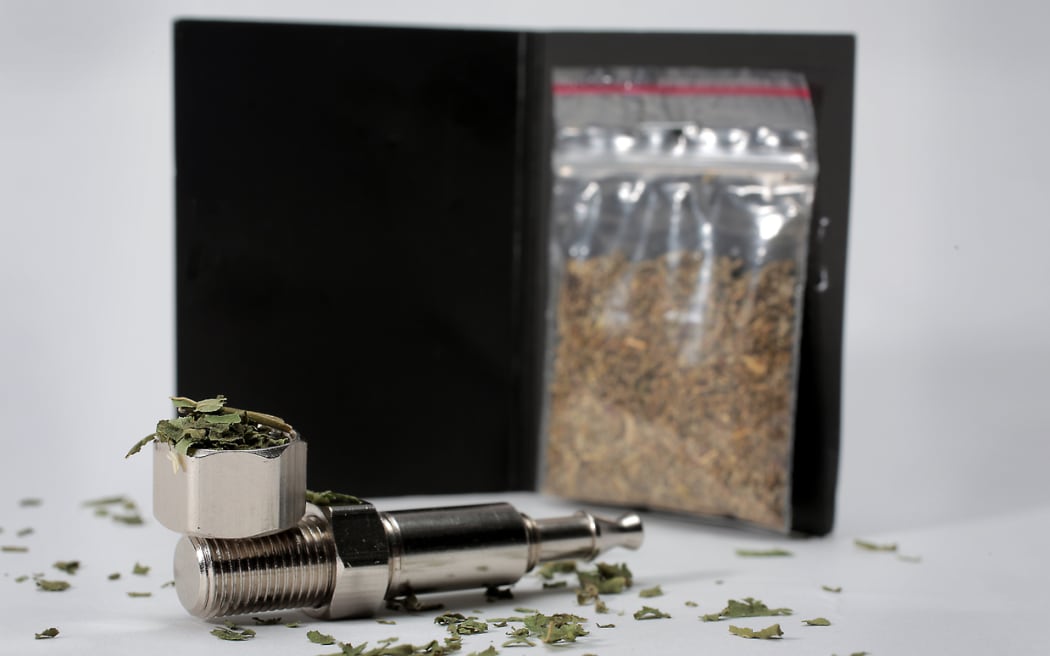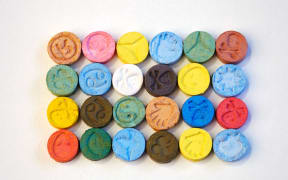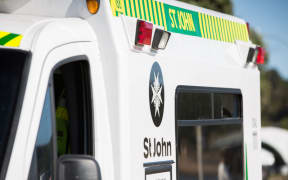
Māori were overrepresented in synthetic cannabinoid overdoses, making up 67 percent of cases. Photo: RNZ / Diego Opatowski
New figures have revealed Māori are three times more likely to die from a drug overdose than Pākehā.
Data in a new NZ Drug Foundation report shows total overdose numbers have risen over the last five years from 111 deaths in 2017, to 171 in 2021.
Drug Foundation executive director Sarah Helm finds the 54 percent increase over a period where the population grew just 6 percent, deeply concerning.
"These are real people that we have lost and it is unacceptable. And we need to do all of the work that is required to prevent further loss of life," she said.
"The death toll of fatal overdoses equates to more than half of the road toll for 2021."
The report showed Māori were disproportionately impacted and were over-represented in synthetic cannabinoid cases, making up 67 percent of cases and 21 percent of deaths.
Māori also made up 27 percent of the total closed fatal overdose cases reported between 2017 and 2021, despite making up only around 15 percent of the population, meaning they were three times more likely to die of an overdose than Pākehā, the report revealed.
"We're very lucky to have drug checking and the early warning system in place now that is having some impact for Māori and it certainly is for synthetic cannabinoids, but it hasn't gotten rid of the issue and we continue to see other overdoses climb. So we're calling for an overdose prevention strategy."
Helm said the figures should be ringing alarm bells for policymakers and she wanted New Zealand's drug and alcohol laws updated to bring the numbers down.
"We have been somewhat asleep at the wheel on this issue because it has been both stigmatised so people keep it to themselves, but also we've had lower levels in other countries so perhaps we've become complacent in an ever-changing drug market."
Māori were being failed and better measures needed to be implemented to help bring down the numbers, she said.
Helm is calling for an Overdose Prevention Centre pilot in Tāmaki Makaurau to help address the number of overdoses seen among the inner city's homeless and most vulnerable populations.
"The person can come in, non-judgmentally receive drug checking services, other sort of first aid kind of stuff, but also enable them to take a substance not on the streets, not on the footpath ... without medical attention - but right there, with a medical supervisor with them."
She said her team had spoken with the homeless in the inner city who applauded the idea.
"They couldn't believe anyone would look after them in this way. And we've also canvassed a number of providers and Ngāti Whatua Orakei and Hapai Te Hauora for example, have come on board supporting this proposal."
"It won't fix the underlying trauma, homelessness, colonisation, etc. that has contributed to the situation that we're in. But it will at least preserve life ... it will help to improve long-term outcomes for those people and reduce the number of overdoses in the area."
Mixing substances - where five or more substances were found in a person's system - made up 42 percent of toxicology fatal overdoses over the past five years.
Prescription and over-the-counter medications also featured heavily, with at least one medicine listed on the toxicology report detected in 77 percent of cases.
The report recommends several interventions and policy changes to reduce overdose fatalities including:
- The establishment of an Overdose Prevention Centre pilot
- Funding to make overdose reversal medicine naloxone freely available to at-risk communities
- Replacing the Misuse of Drugs Act with a health-based approach, as recommended in the Law Commission's 2011 review
- Implementing the findings of the Law Commission's 2010 review of the Sale and Supply of Liquor Act
- Better training for communities and health professionals
- More harm reduction information







